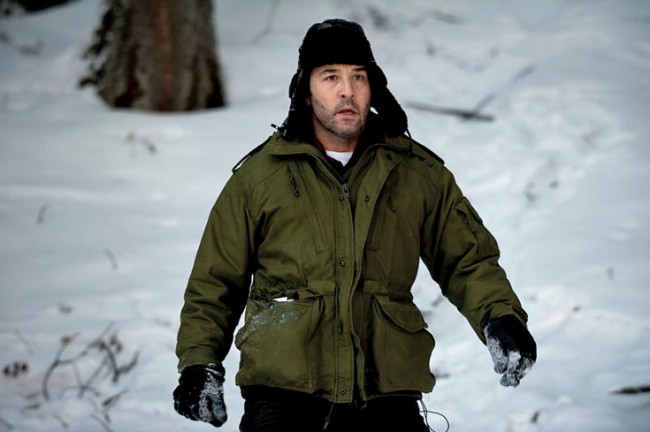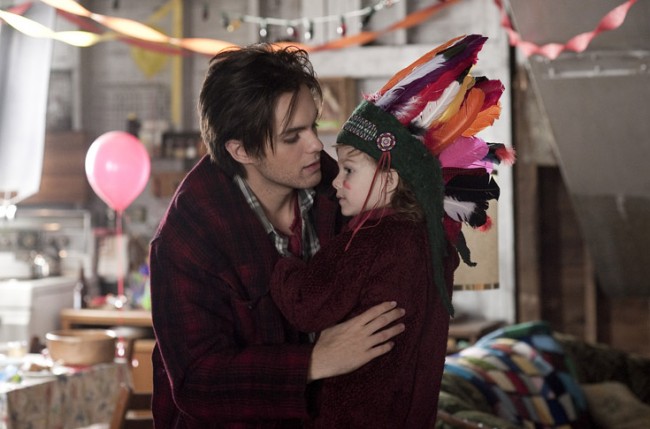
Films filled with tragedy are often in high supply at festivals like Tribeca. These noble independent efforts dealing with grief, mourning, and the repercussions of bad decisions don’t have wide audience prospects nor distributors pining to acquire them. The latest in this category, Angels Crest, comes from director Gaby Dellal, tackling a novel by Leslie Schwartz and adapted by Catherine Trieschmann.
In an earnest opening, a young father Ethan (Thomas Dekker) goes on a trip with his three-year-old son Nate. Although he clearly loves his son, in a moment of negligence, he leaves the boy in his car to explore the woods. After returning from this short trip, he finds his truck empty and a long search by the townspeople results in no luck. The next morning, Ethan uncovers the frozen, dead body of his son and rest of the film follows the path of guilt and blame that rips through this Rocky Mountain small town.
One would expect to follow Ethan in this story, but Dellal doesn’t keep a singular point of view, opting to pull back and look at the tragic event’s aftermath permeating the town. We have Jeremy Piven, the local district attorney, who is researching to prosecute Ethan. There is Joseph Morgan, playing Ethan’s best friend, and sleeping with the mother of his dead son, Cindy (Lilly Collins). Mira Sorvino plays Angie, who operates the local diner and has a child of her own. Lastly, we have Angie’s waitress Jane (Elizabeth McGovern) and then her partner Roxanne (Kate Walsh).
For a film just over 90 minutes, Dellal has big ambitions. Mingling all these stories into one connective tissue is admirable, but gives a greater chance for weaknesses to protrude. Most hindered is McGovern and Walsh and their lesbian partnership. I would have loved to see an entire film about the layers hinted at in their relationship, but it feels like Dellal is simply eager to get to the next scene. Piven, bringing the most star power to the film, feels equally light on depth. There are awkwardly handled hints at a past paralleling what Ethan is handling now, but it never manages to truly hit home, despite Piven’s clear ability to handle this departure in his mostly comedic career.
Dekker and Collins’ characters (and their brutal relationship) is the most satisfying. They each have their bouts of derivative overacting when dealing with this tragedy, but the pain one must go through after such an event comes across. Ethan’s desperate search to find his son is heartbreaking, simultaneously carried out with the audience’s impending realization of the devastating truth. Cindy’s desire to see Ethan pay for what he’s done is troubling and questionably motivated, but she epitomizes the down-and-out character.

Shot in Calgary, Alberta cinematographer David Johnson delicately captures the gorgeous mountain landscape. Little flourishes like focusing on individual snow flakes as Ethan searches for his son, and highlighting the despair in unappealing bedrooms and diners give character to the town.
The strongest theme of the film is the way Ethan’s mistake affects the town. Whether it is Cindy reuniting with her mother, Angie re-evaluating the safety of her own daughter, or the way the community comes together (or blames) Ethan, Dellal attempts to touch on all the possibilities. Reminiscent of Winter’s Bone in style and small, connected town sensibilities, Dellal has crafted a realistic drama about a tragedy and its effects. While not as gripping as Debra Granik‘s haunting noir, the worthy performances from this ensemble cast make up for the lack of depth.

